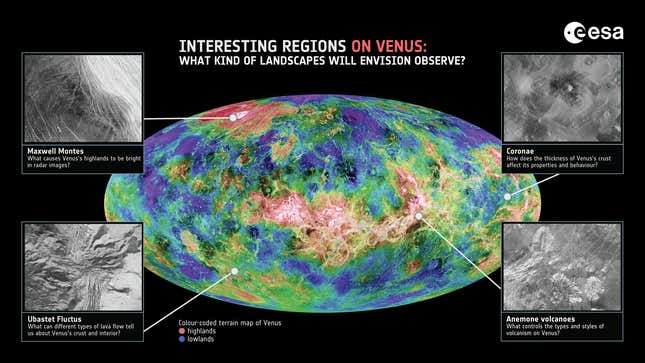The European Space Agency officially approved the EnVision mission to Venus, committing to sending a spacecraft to the planet by the early 2030s. EnVision is planned as an orbiter to study Venus extensively from its upper atmosphere to its core. Venus, originally thought to have a formation similar to Earth, is now hot, cloud-covered, and unique in many ways, including its backwards rotation and high air pressure. EnVision aims to study the entire planet as a system, investigating its surface, interior, and atmosphere with unprecedented accuracy to understand how they work and interact. The mission will also search for signs of active volcanism on the planet. EnVision was announced in 2021 close to NASA’s announcement of their own plans to explore Venus. NASA’s previous visit to Venus was with the Magellan mission in 1994, and the last visit by ESA was the Venus Express orbiter, which completed its mission in 2014. The EnVision orbiter is scheduled to launch in 2031 on an Ariane 6 rocket. Meanwhile, NASA’s planned Venus missions have faced budget issues, delaying the VERITAS mission and leaving only a fraction of the DAVINCI+ mission funded. Despite financial concerns, ESA’s approval of EnVision represents a significant step towards unraveling the mysteries of Venus.
An Ambitious Mission to Venus Is Set to Launch in 2031














 Lockheed Martin proposes a cost-cutting plan to scale
Lockheed Martin proposes a cost-cutting plan to scale